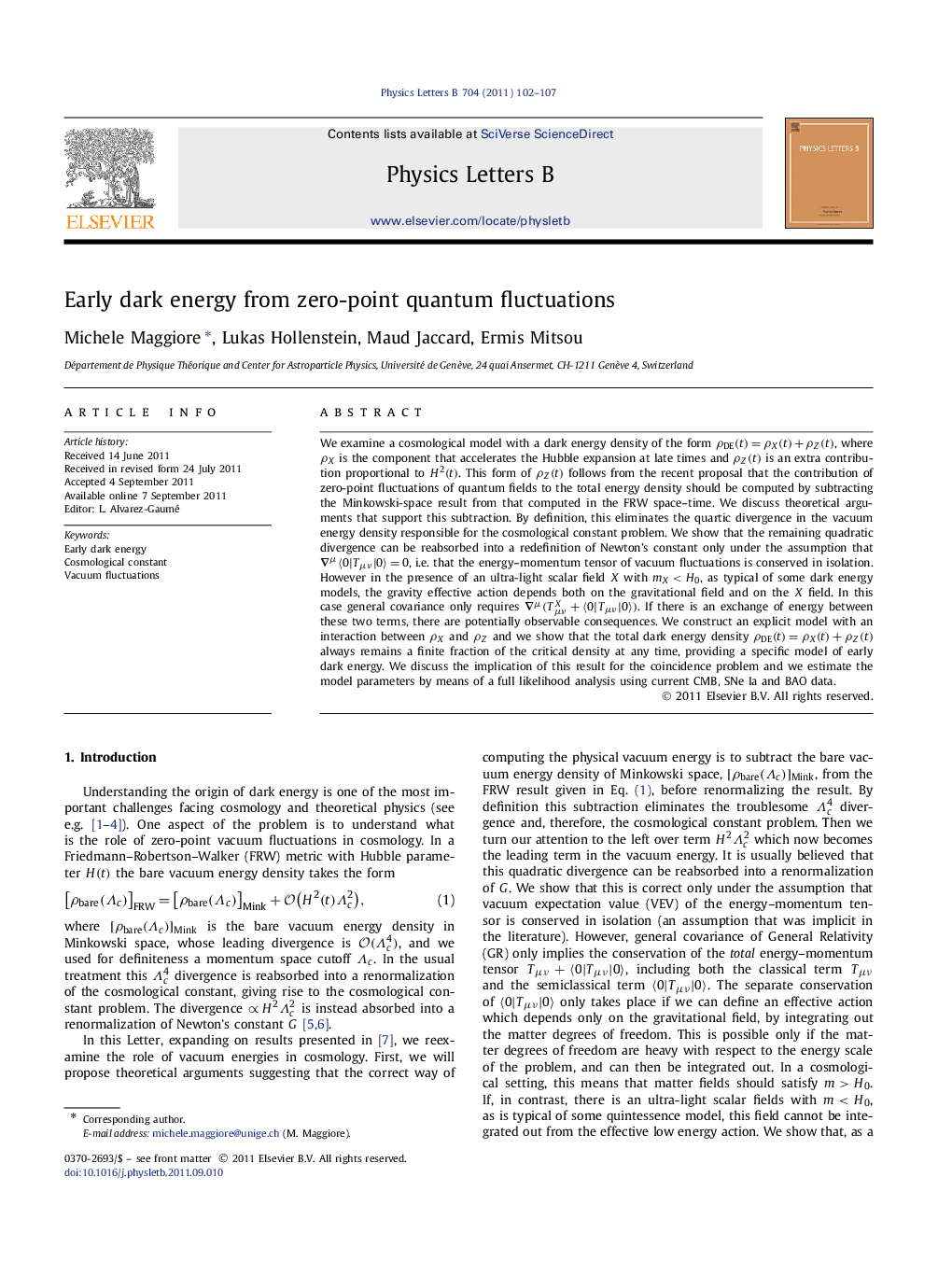| Article ID | Journal | Published Year | Pages | File Type |
|---|---|---|---|---|
| 10721901 | Physics Letters B | 2011 | 6 Pages |
Abstract
We examine a cosmological model with a dark energy density of the form ÏDE(t)=ÏX(t)+ÏZ(t), where ÏX is the component that accelerates the Hubble expansion at late times and ÏZ(t) is an extra contribution proportional to H2(t). This form of ÏZ(t) follows from the recent proposal that the contribution of zero-point fluctuations of quantum fields to the total energy density should be computed by subtracting the Minkowski-space result from that computed in the FRW space-time. We discuss theoretical arguments that support this subtraction. By definition, this eliminates the quartic divergence in the vacuum energy density responsible for the cosmological constant problem. We show that the remaining quadratic divergence can be reabsorbed into a redefinition of Newtonʼs constant only under the assumption that âμã0|Tμν|0ã=0, i.e. that the energy-momentum tensor of vacuum fluctuations is conserved in isolation. However in the presence of an ultra-light scalar field X with mX
Related Topics
Physical Sciences and Engineering
Physics and Astronomy
Nuclear and High Energy Physics
Authors
Michele Maggiore, Lukas Hollenstein, Maud Jaccard, Ermis Mitsou,
